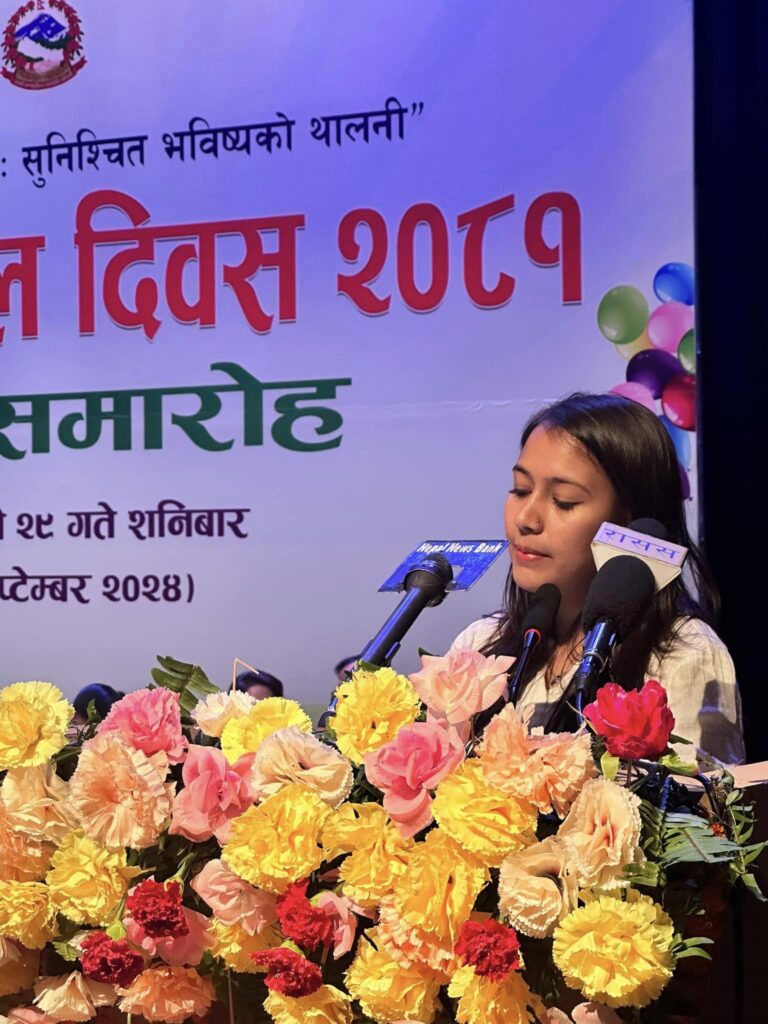National Child Advocates Council Member shared remarks on the occasion of National Children Day 2081

During the National Children Day celebration organized by Ministry of Women Children and Senior Citizen/ National Child Right Council, National Child Advocates Council member Prekshya Adhakari shared her speech on behalf of Nepali Children, She shared about the both good practices done by government and problems and issues of child rights in Nepal. She shared about the Children Act 2075 and Children’s Regulations 2078. There are clear provisions for forming child rights committees at both state and local levels. These policies include establishing children’s funds at the local level, appointing child welfare officers, and recruiting counselors and social workers to support the well-being of children. Essential services like health care, nutrition, clean drinking water, and sanitation are also prioritized, alongside efforts to protect children from violence, abuse, and exploitation. Special protections are guaranteed, and initiatives such as the 100% school enrollment campaign, mid-day meal programs, and first aid facilities have benefited children across the country. Moreover, with the provision of sanitary pads in schools, no girl has to return home due to menstruation.
She stated that, while these efforts are commendable, they are not enough. Child labor remains visible in city hotels, street children continue to struggle, child marriages still occur in rural areas, and instances of sexual abuse persist in our society. She said that previously, under the local body system, 10 percent of the budget was reserved for children. But with the shift to federalism and the formation of local governments, this provision has disappeared. The programs and budgets for children have not been properly prioritized in children sectors. The absence of a minimum budget for children’s welfare at the local level is a significant loss.
She also mentioned the suggestions that were collected from the voice of all seven provinces during child led VNR report. The suggestions were like meaningful child participation in all level of government, necessary to address the mental health problems of children immediately, to ensure children’s right to quality education, prevent physical and mental violence in schools, increase investment in necessary programs related to sexual and reproductive health rights and enhancement of life skills. She mentioned that although children are most at risk from the effects of climate change, there is no practice of involving children in plans, policies and programs related to climate change and listening to and discussing their experiences, as well as with the increasing use of digital technology and social media, incidents of online abuse and exploitation against children are increasing. Therefore, the government of Nepal must create and implement a multi-sectorial strategy and master plan to ensure the online safety of children. At the end she requested to government to create child friendly environment to ensure child rights.